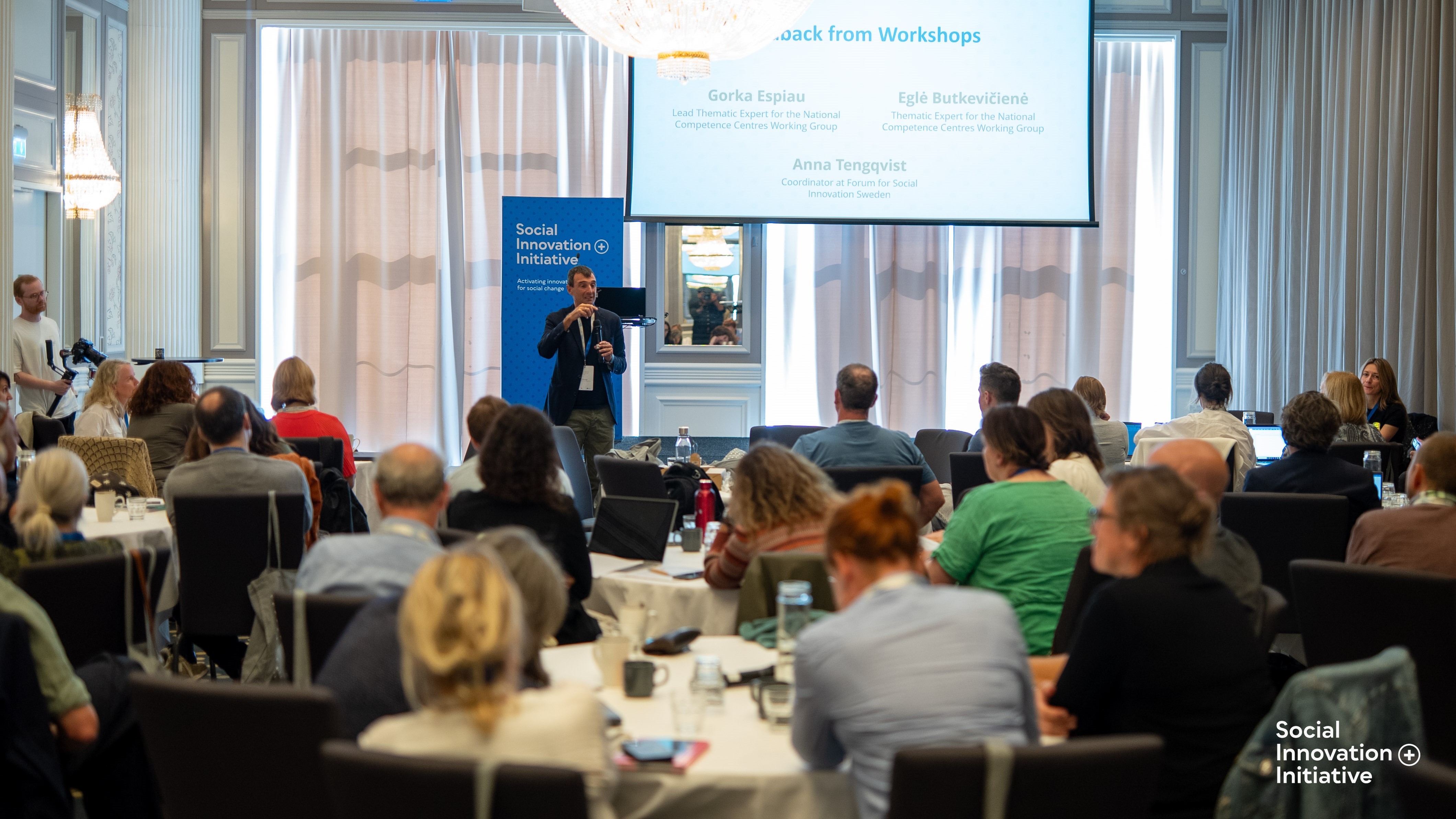Scientific Knowledge into Practice – EU Cooperation on Social Innovations in Malmö and Copenhagen
Scientific Knowledge into Practice – EU Cooperation on Social Innovations in Malmö and Copenhagen
The EU has established a pan-European infrastructure of National Competence Centres for Social Innovation. These centres gathered in Malmö in mid-September to collaborate and exchange knowledge at the European level. Following the conference, Innovillage also took part in the INSISST consortium’s cooperation meeting in Copenhagen. Both meetings highlighted how important it is to build bridges between research, practical development, and policymaking. By doing so, we can jointly strengthen the ecosystem and impact of social innovation, both in Finland and across Europe.
Image

Across Europe, work is underway to strengthen social cohesion and societies’ ability to adapt to change. Social innovation plays a key role in this work – it builds collective capacity and is high on the agenda of both the European Union and the OECD.
As part of this effort, the EU has created a pan-European infrastructure of National Competence Centres for Social Innovation. These centres met in mid-September in Malmö to collaborate and share knowledge at the European level. Following the conference, Innokylä also took part in the INSISST consortium’s cooperation meeting in Copenhagen. Both meetings highlighted the importance of building bridges between research, practical development, and policymaking – a foundation for strengthening the ecosystem and impact of social innovation in Finland and across Europe.
Mutual Learning Among Competence Centres in Malmö
In mid-September, Innokylä, Finland’s National Competence Centre for Social Innovation, had the pleasure of participating in the third mutual learning event of the National Competence Centres (NCC) network, held from 10–12 September in Malmö, Sweden. The event was organised by the ESF+ Community of Practice on Social Innovation in cooperation with Sweden’s national competence centre, the Forum for Social Innovation.
The theme of the meeting was “Advancing Social Innovation through Collaboration and Knowledge Sharing.” The focus was on scientific and evidence-based approaches to solving societal challenges. Social innovation means developing better solutions to complex societal problems, and to promote this, it is essential to find effective ways to involve researchers and universities in the work of the competence centres.
The Role of Scientific Knowledge in Social Change
The event explored how research and academic cooperation can strengthen the competence centres’ ability to understand, develop, and evaluate social innovations. Discussions highlighted that universities no longer act only as knowledge producers but also as active social actors and partners: students co-create solutions, researchers engage in participatory development, and universities serve as anchors within local and regional innovation ecosystems.
Sweden’s competence centre operates within Malmö University, providing a strong academic foundation and offering new insights on how to lower barriers for actors from different sectors to participate. The centre carries out continuous analysis and learning at the project, programme, and system levels.
Peer Learning and Practical Solutions
During the meeting, participants shared concrete challenges faced by their respective national competence centres and received feedback and solution proposals from colleagues in other countries. The structured yet open format of the discussions helped generate new ideas for collaboration with managing authorities, diversifying funding sources, and impact assessment.
The week in Malmö demonstrated that cooperation between competence centres is becoming increasingly concrete and practice-oriented. Each meeting strengthens the atmosphere of trust and mutual learning.
The INSISST Consortium Meeting in Copenhagen
After the Malmö meeting, the Innokylä team continued to Copenhagen, where the INSISST consortium (International Network for Social Innovation Scaling and Systemic Transformation) met at the invitation of Denmark’s National Competence Centre (Academy for Social Innovation). Alongside Finland, the consortium includes Belgium, Poland, Ireland, the Czech Republic, and Denmark.
In Copenhagen, discussions focused on comparing methods for measuring impact, initiating the development of innovative funding models, and drafting a joint statement on the role of social innovation in the next EU funding period starting in 2027.
The shared learning journey in Malmö and Copenhagen once again reinforced how crucial it is to build bridges between research, practice, and policy. Only by doing so can we collectively strengthen the ecosystem and impact of social innovation—in Finland and across Europe.
Image

Innovillage operates as Finland’s National Competence Centre for Social Innovation, together with its national partners: Metropolia University of Applied Sciences, SOSTE, the Association of Finnish Local and Regional Authorities, the Rehabilitation Foundation, Silta Valmennus Association, and Diaconia University of Applied Sciences. The activities are funded through the ESF+ Social Innovation+ Initiative.
Learn more about the National Competence Centre for Social Innovation (in Finnish)